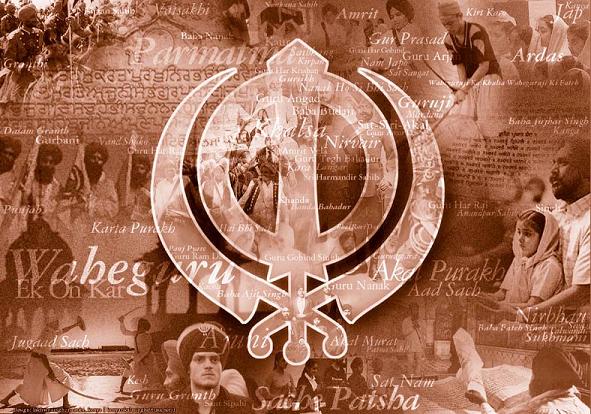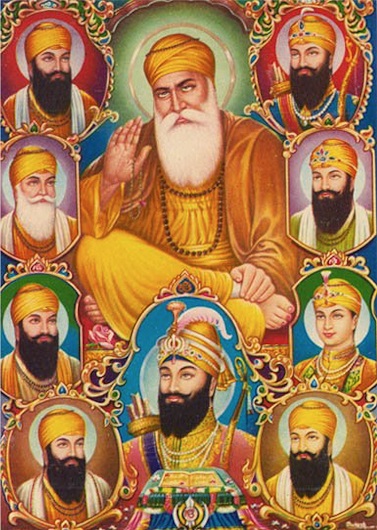Khalsa
The Tenth Master
established 'Order of the Khalsa.''
Khalsa
means the Guru's own i.e. his special,
loved one: the pure one. This order
was to uplift the masses to fight for
their rights, to struggle for freedom
including that of their faith, to stand
up against oppression, discrimination,
cruelty, and to lead the people for
selfless service combined with universal
love, help to the needy and protection
to the weak. The people properly
initiated into the Sikh faith were also
called Khalsa. The Khalsa keep
their hair unshorn, head covered, and
observe other dictates of the order.
The men tie turbans and usually a long
cloth is worn by the women to cover
their heads. The use of caps, hats etc.
is not permitted in the Sikh
world.
Amrit
The people are initiated
into the Sikh faith by a special
ceremony of drinking 'Amrit' -
the Holy Drink. The Khalsa's (properly
initiated
Sikh's) name should end in 'Singh'
for males, and 'Kaur' for
females, as
it is usual for the Sikhs in general.
Singh means a lion, and Kaur is a
princess. The regular salutation of the
Sikhs is 'Sat Sri Akal'- Hail the
Lord! However, more formal one is, 'Waheguru
ji ka Khalsa, Waheguru ji
ki fateh' - the Khalsa belongs to
God, Glory to Him.
Sikh Prayer
The Sikhs recite their
set prayers in the morning, evening
and at bedtime. They bow to the Holy
Book and recite it with reverence.
They believe that the Hymns composed by
the Gurus, and given in Guru Granth
Sahib were revealed to them by
God.
Besides, the individual
i.e. personal meditation on God,
they perform 'Kirtan' - sing His
praise, and meditate on Him in the
congregation.
They hold their gatherings usually on
weekends in the presence of the Holy
Book in their place of worship called 'Gurdwara'-
residence of the Guru.
Sometimes, they get-together to pray at
their homes, too. Their every ceremony
is performed in the presence of their
Holy Book. Their gatherings mostly
end in 'Langar' - common
(community) food - sitting together and
eating.
It may be prepared singly, jointly, at
home or at the Gurdwara. This is
a free service.
Waheguru
The Sikhs call God 'Waheguru'-
Wondrous One i.e. the Wonderful
God. 'Wahe' means an appreciation
in wonder. 'Guru' means the
eliminator
of ignorance. The central theme of their
teaching is known as 'Mool-Mantar.-
the
Basic i.e. Root-Formula.' This is
- 'There is only One
God, He is all pervading, the supreme
Truth, the only Creator, all powerful
and without discrimination, above the
time and space, not bound by the
birth and death, self-created. And this
realization comes through His own
Grace.'
Invocation
Every 'Ardas' -
Invocation or supplication by the Sikhs,
is mainly a very brief repetition of
their history, and begs for His
mercy.
It ends with 'O Lord, be merciful to
all, and bless everyone with a high
morale!'



